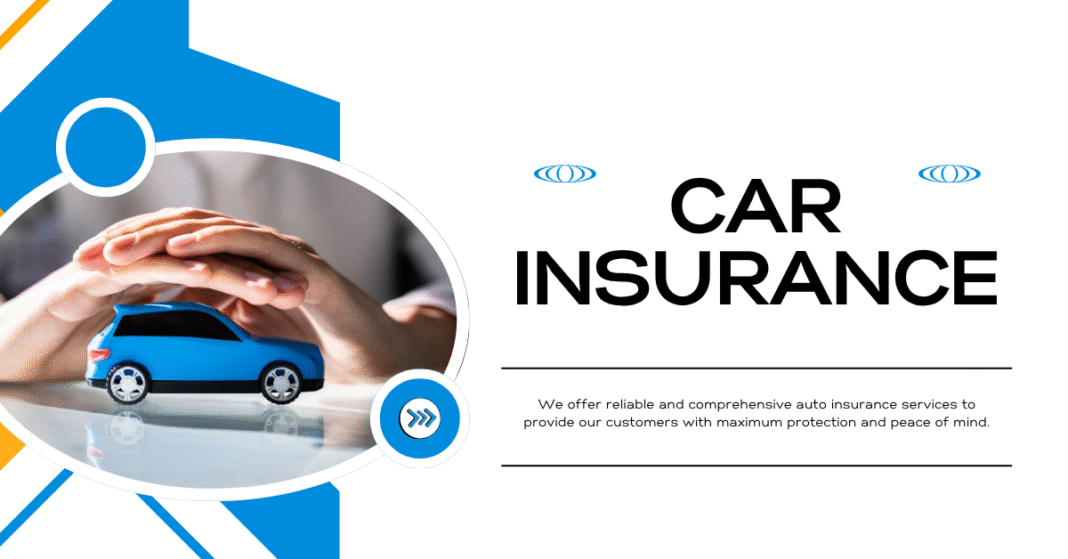One moment you’re enjoying your drive, the next is bam! Something goes wrong. That is when car insurance becomes more than paperwork; it is your lifeline. Every state requires a minimum amount of coverage, but it is also there to protect you from expensive repairs, theft, and other surprises on the road. In this blog, we will guide you through everything you need to know about car insurance. From its coverages and types to the best companies, the benefits it offers, and expert tips based on our research.
What Is Car Insurance and How Does It Work?
Car insurance is a legal agreement between you and an insurance policy company. You pay them a specific amount of money (called a premium), and in return, they assist to cover your expenses if your car is damaged, stolen, or involved in an accident. Most of the policies consist of liability insurance (which covers the costs of the harm or injury you cause to a third party) and physical damage (which will fix or replace your vehicle). Most of them also cover medical expenses, and other expenses.
You can choose the type of protection you want and the highest amount your insurer will pay. Every state requires some basic coverage, and if you lease or finance your car, your lender will usually ask for extra coverage. When you get auto insurance, you choose a deductible often $500 or $1,000. This is the amount you pay yourself before the insurance company starts paying. Liability coverage usually has no deductible, but collision and comprehensive coverage do.
The cost of auto insurance varies such as your age, driving records, credit score, place you live, application type of your car, how frequently you drive a car. You may even be eligible for discounts for safe driving, bundling policies, or having anti-theft devices in your vehicle. If an accident happens, you file a claim with your insurer. Depending on the situation, they’ll either pay for repairs, replace your car, or cover the costs you’re legally responsible for up to your policy limits.
What does full coverage car insurance cover?
Full coverage is not a technical name in the insurance domain but is usually referred to cover all the major protective covers; liability coverage, collision coverage and comprehensive coverage. And even when you are still paying a car off or leasing a car they want you to have these.

Liability coverage: Almost all states will require liability coverage. It contributes to cover injuries or damage caused to another person by you and it may also cover legal expenses in case of a lawsuit on you.
Collision coverage: The sort of insurance assists in the repair or purchase of a fresh automobile in the event of collision with another automobile or a fence, a post, and so on. It is not a legal requirement, but is frequently requested by lenders.
Comprehensive coverage protection will cover your car against non-collision related damages (such as theft, fire, vandalism, storm and hitting a wild animal).
Full coverage may also include:
- Medical payments or personal injury protection that will pay medical expenses of you and your passengers.
- Uninsured automobile coverage in case they hit you and you need it because their coverage is insufficient.
- Insurance on the car you are renting in case the price of the car you have suffered damages will be fixed.
- Gap insurance in case the value of your totalled car is lower than the amount of debts.
- Roadside assistance such as towing or jump-start.
- Accident forgiveness ensures that your first accident does not increase your rates.
Discuss with your insurance agent to have the right protection for you and your car. Although you may have a policy that indicates full coverage, it is important to first find out what is covered. You may not be required to have all of them and unnecessary coverage will increase your expense.
How Much Is Car Insurance?
Car insurance costs can vary a lot depending on several important factors. According to Bankrate’s analysis of data from Quadrant Information Services, the average cost of car insurance in the U.S. is $2,679 per year which feels like a heavy expense for many Americans. Since 2024, the price of full coverage insurance has gone up about 12%. If you only buy the minimum coverage required by law, the average cost drops to around $808 per year.
Remember: these are averages. Even if you and another driver look to be similar and live in the same area, your actual cost may be very different. For example, the type of vehicle you drive and your personal driving record have a big effect on your rates.
What affects how much you will pay?
Your Car: Make, model, and year influence insurance costs. Luxury and sports cars are more expensive to insure.
Your Age and Gender: Young drivers and teens in particular, pay more because they are perceived as risky.
Your Driving Record: Incidents, fines or DUI’s may raise auto insurance prices. Keeping a clean driving record costs are lower.
Your Deductible: Higher deductibles can lower premiums.
Your Coverage: Higher limits and more coverage options result in higher premiums.
Location: Higher rates in areas with more accidents, theft, or bad weather.
Credit History: Better credit can result in lower premiums.
In April 2025, an expected 25 percent tariff was imposed by the U.S. on imported passenger vehicles and automotive parts, except on those that met the requirements of the USMCA. But insurance can become more expensive. Comparing policy price, and using discounts by driving carefully using coupons for anti-theft/bundling policies may be useful in saving money by comparative quotes and insurance policy.
How to lower costs
The cost of car insurance can be reduced by comparing quotes, bundling policies of the same insurer, lowering usage, increasing deductibles and seeking discounts. Quotes can be used to compare costs and get competitive prices in a dynamic market. It is also possible to save on money when policies are bundled alongside homeowners or renters insurance.
Tips for choosing the best car insurance?
The choice of the appropriate car insurance will rely on your finances, risk tolerance, and type of coverage you require. The following are easy steps that can help you make a decision:
- Determine what the law says is the minimum coverage that the state will permit.
- Consider your car, how you drive it, and where you drive.
- Determine how much you need, deductible and the highest amount that you want to be paid by the insurance.
- Enquire about prices of various insurance companies and find relative prices and coverages.
- Review your policy on a regular basis, to ensure that it can still fit to meet your needs as circumstances change.
Best Car Insurance Companies
Some of the best car insurance companies are discussed below; they were chosen to excel in specific attributes or aspects that are valued by the various drivers:
Travelers: Best for the Military Community
USAA: Cheapest Car Insurance Company
American National: Best for Discounts
Geico: Best for Seniors
Progressive: Most Likely to be Renewed
Nationwide: Best for Teen Drivers
Auto-Owners: Best for Add-On Coverage
Farmers: Best for Customer Service
Amica: Best Usage-Based Insurance Program
The Hartford: Best Overall Coverage Options
Get your car insurance quote today: How to get it?
You can get car insurance in several convenient ways. There is the possibility to go online, answer the simple questions and customize your coverage to obtain a quick quote. If you prefer personal assistance, you can call a licensed representative at their working phone number, who will guide you through the process. Another choice is to work with an independent agent in your area, which you can easily find online.
FAQs
What does insurance do?
Insurance means the protection of your fiscal resources against some costs in case something wrong happens, such as an accident or property damage.
What are the benefits of car insurance?
It can help cover the repair cost, health, and property damages and safeguard against big first aid bills.
How much is car insurance?
The type of coverage, your driving history, the type of car and your geographical place of residence will determine the price but will range in number of a few hundred dollars to more than a thousand dollars annually.
What is car insurance excess?
It is a predetermined amount that you are ready to cough out always in advance of a claim before your insurance company covers the remaining part of the claim.
What is car insurance deductible?
It’s the same as excess. The portion of a claim you pay yourself before insurance kicks in.




